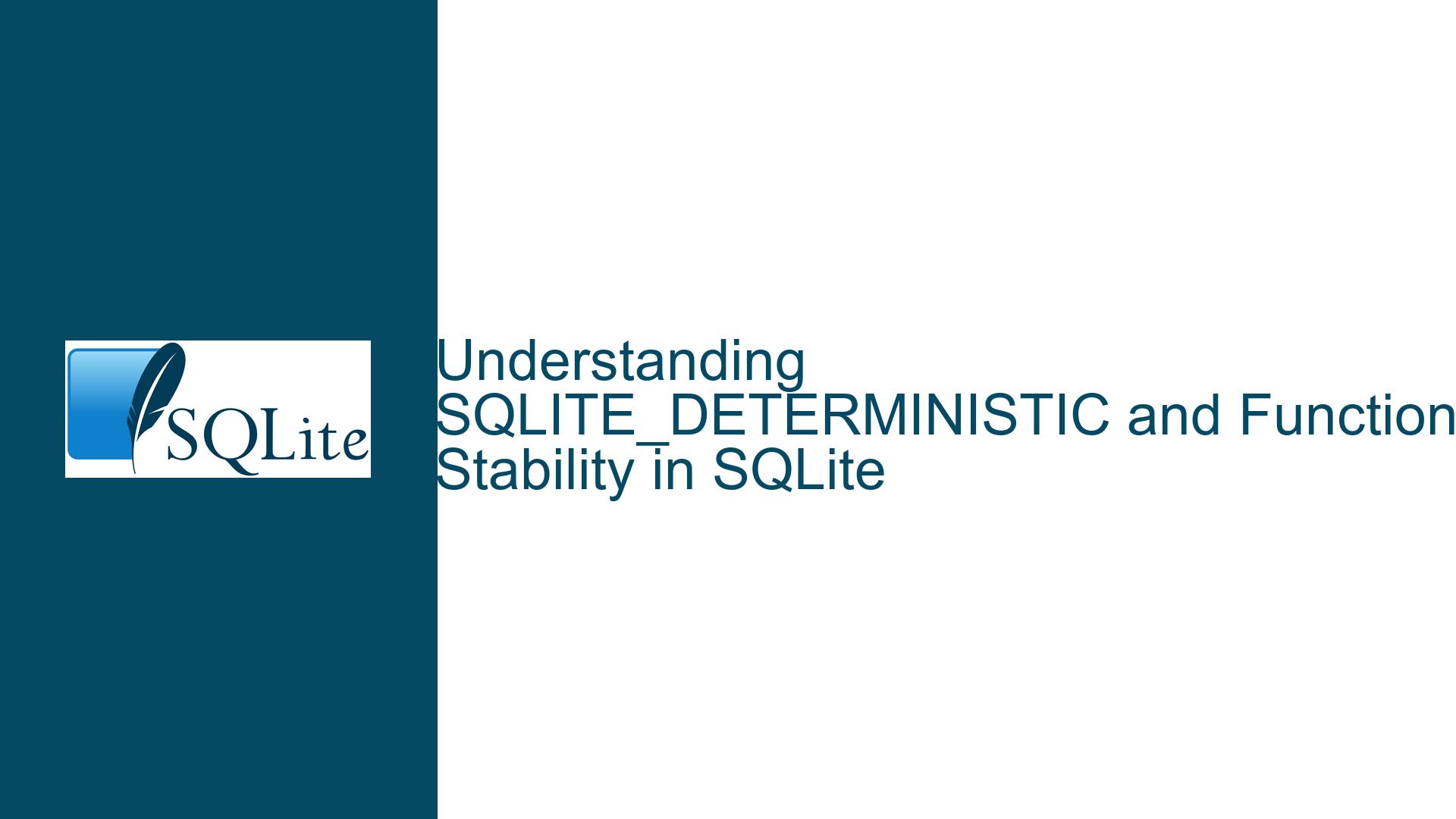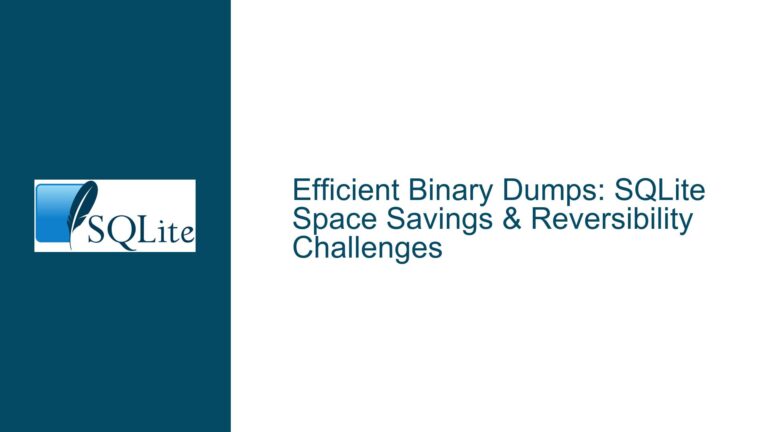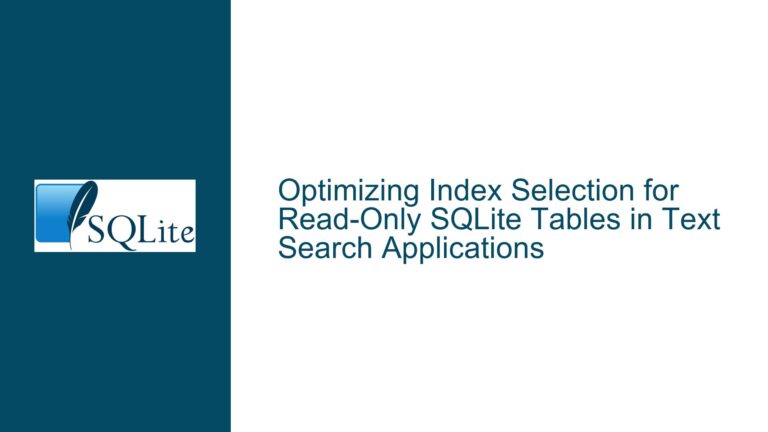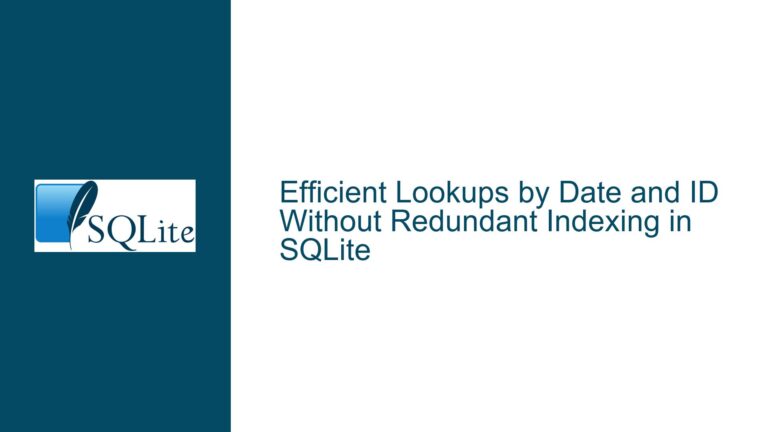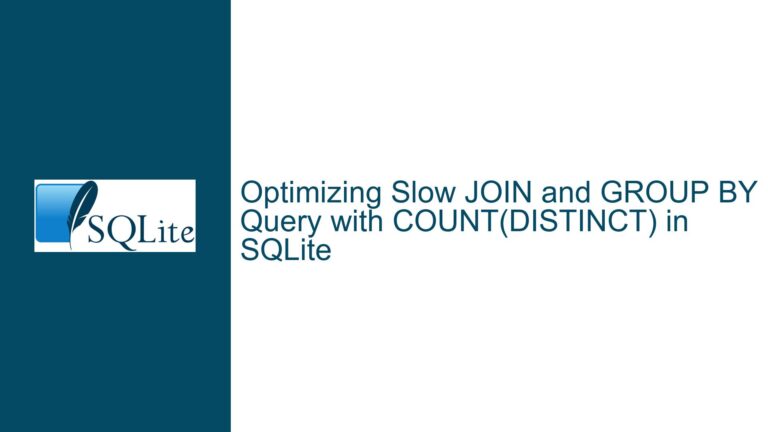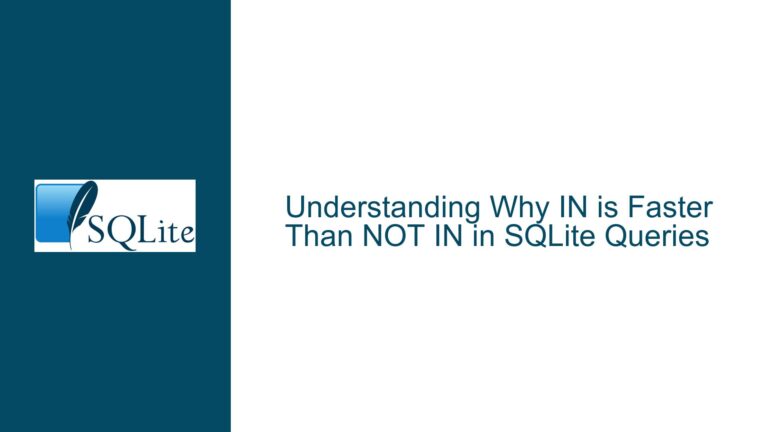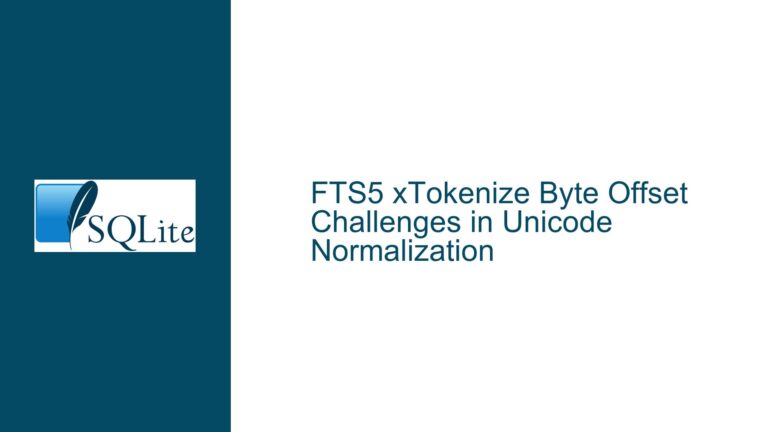SQLITE_DETERMINISTIC and Function Stability in SQLite
SQLITE_DETERMINISTIC and Its Implications on Function Stability
The SQLITE_DETERMINISTIC flag in SQLite is a critical feature for optimizing user-defined functions (UDFs) by indicating that a function will always return the same output given the same input. However, the exact scope of "always" in this context is often misunderstood, leading to confusion about when and how the flag should be used. The flag is primarily intended to inform the SQLite query planner about the behavior of a function, allowing it to optimize query execution by potentially caching results or reusing them within a specific context.
The core question revolves around the temporal scope of the SQLITE_DETERMINISTIC flag: Does "always" mean the function’s output remains constant for the duration of a connection, a single statement execution, or across multiple statement executions? This is particularly relevant for functions like my_app_dir(), which may return different results over the lifetime of an application but are expected to remain constant during the evaluation of a single SQL statement.
For example, consider a UDF that concatenates a base directory path with a subpath:
SELECT my_app_dir() || 'sub/path/within/app/dir';
Here, my_app_dir() might change during the application’s runtime but should not change during the execution of a single SQL statement. The goal is to ensure that SQLite does not repeatedly call my_app_dir() within the same statement, thereby avoiding unnecessary allocations and improving performance.
Interrupted Write Operations Leading to Index Corruption
The confusion around SQLITE_DETERMINISTIC often stems from its interaction with other SQLite function flags, such as SQLITE_SLOCHNG and SQLITE_CONSTANT. These flags provide additional granularity in describing function behavior, particularly in scenarios where a function’s output is stable for the duration of a single statement but may change between statements.
SQLITE_SLOCHNG, for instance, is an internal flag used to indicate that a function’s output is stable during the execution of a single statement but may change between statements. This is particularly useful for functions like UserName() or GetFileAttributes(), which retrieve dynamic information but are expected to remain constant during the evaluation of a single query. However, SQLITE_SLOCHNG is not part of the public API, limiting its utility for developers who need similar behavior in their UDFs.
The absence of a public flag like SQLITE_SLOCHNG forces developers to rely on SQLITE_DETERMINISTIC, which implies a stronger guarantee of stability. This can lead to suboptimal query plans or even errors if the function’s behavior does not align with the strict determinism implied by the flag. For example, using SQLITE_DETERMINISTIC for a function like my_app_dir() could result in incorrect caching of results if the directory changes between statement executions.
Implementing PRAGMA journal_mode and Database Backup
To address the limitations of SQLITE_DETERMINISTIC and the lack of a public SQLITE_SLOCHNG flag, developers can adopt several strategies to ensure optimal performance and correctness. One approach is to use SQLITE_CONSTANT in combination with SQLITE_DETERMINISTIC to indicate that a function’s output is stable for the duration of a single statement. This allows the query planner to optimize function calls without assuming indefinite stability.
For example, consider the following UDF definition:
sqlite3_create_function_v2(
db, "my_app_dir", 0, SQLITE_DETERMINISTIC | SQLITE_CONSTANT, NULL, &my_app_dir_func, NULL, NULL, NULL
);
Here, the combination of SQLITE_DETERMINISTIC and SQLITE_CONSTANT signals to SQLite that my_app_dir() is stable for the duration of a single statement but may change between statements. This approach leverages existing flags to approximate the behavior of SQLITE_SLOCHNG without requiring changes to the SQLite API.
Another strategy is to modify the function to include a parameter that changes with each statement execution. For example:
SELECT my_app_dir(@statement_id) || 'sub/path/within/app/dir';
In this case, @statement_id could be a unique identifier generated for each statement, ensuring that SQLite treats each call to my_app_dir() as distinct. This approach effectively simulates the behavior of a non-deterministic function while allowing the query planner to optimize repeated calls within the same statement.
Finally, developers can use SQLite’s PRAGMA journal_mode to ensure data integrity and optimize performance. For example, setting PRAGMA journal_mode=WAL enables write-ahead logging, which can improve concurrency and reduce the risk of database corruption during power failures or other interruptions. Additionally, regular database backups can help mitigate the impact of unexpected changes to dynamic functions like my_app_dir().
In conclusion, understanding the scope and implications of SQLITE_DETERMINISTIC is essential for optimizing SQLite queries and ensuring correct behavior in applications that rely on dynamic UDFs. By combining existing flags, modifying function parameters, and leveraging SQLite’s built-in features, developers can achieve the desired balance between performance and correctness without requiring changes to the SQLite API.
